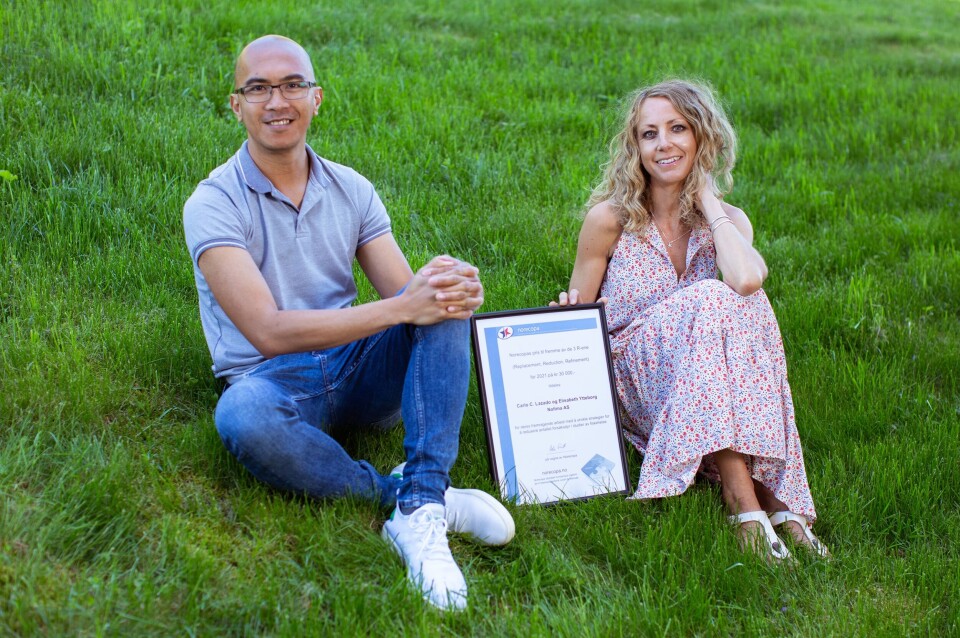
Researchers win prize for reducing experiments on fish
Two scientists from Norwegian research institute Nofima have been awarded a prize for their efforts to advance strategies for reducing the number of laboratory animals in fish health studies.
Carlo C Lazado and Elisabeth Ytteborg were given the Norecopa 3R Prize, awarded annually for outstanding research or development efforts to reduce the scope and severity of the testing experimental animals are subjected to. Norecopa is Norway’s national consensus platform for advancing the “3Rs” (Replacement, Reduction & Refinement) in connection with animal research.
Lazado and Ytteborg apply multiple strategies to reduce the use of fish in research. They have developed techniques for measuring the health of salmon without killing the fish first. They have used in vitro models to measure responses to stimuli in cells in the lab instead of in live fish, and they base projects on fish that are already in trials for more efficient use of data and research inputs.
‘Fish health matters’
“Being awarded this Prize from Norecopa is a great recognition,” said Ytteborg. “It shows that our efforts to reduce the number of animals in experiments count and, not least, that the health of farmed fish matters. Fish are the most commonly used laboratory animals in Norway, and I hope that we can use this prize to inspire others to reduce the use of fish in research.”
Methodological work is focal in the research conducted by Lazado and Ytteborg. However, Lazado also emphasised that the way they design projects is crucial in reducing the use of animals in research.
“Many projects are undertaken concurrently with each other and apply related approaches to research on fish in Norway,” said the researcher. “In a major in-house project, we therefore involved colleagues from multiple disciplines and diverse approaches. We collaborated with existing projects to gain insights into and increase the value of studies that were already in progress. As a result, we were able to make more efficient use of the fish already in the research trial, but also gained access to more analyses for testing our hypotheses.”
As well as a diploma, Lazado and Ytteborg were also awarded NOK 30,000 to be invested in further 3R efforts. The researchers intend to use the money to host a workshop on reducing the number of fish used in research.























































